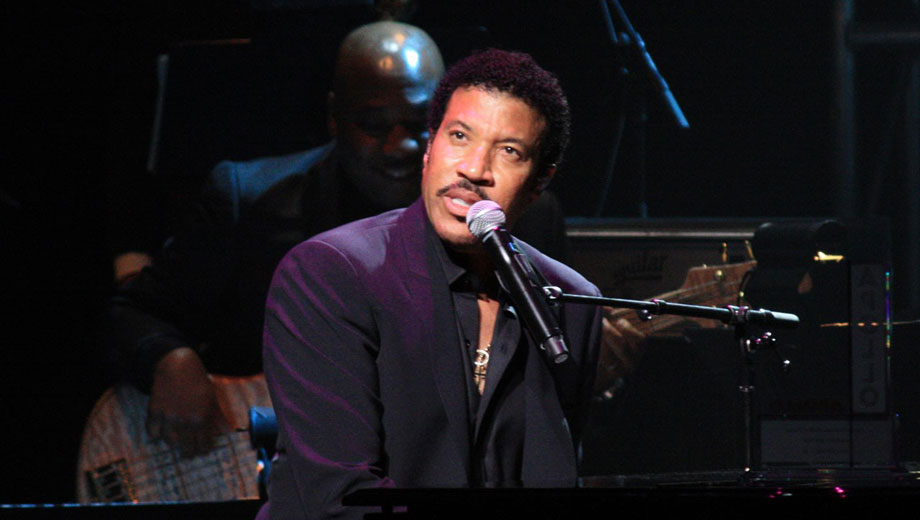You can comb the incredible statistics surrounding Lionel Richie’s amazing career and still miss something. You can factor in the nearly 100 million albums sold, the five Grammys, 30 top ten hits, an Oscar for “Best Song,” a Golden Globe Award, a treasure chest of People’s Choice and American Music Awards, plus a discography of albums and singles that navigate an emotional landscape only few writer/performers have ever truly captured – and still not see what may be the key to this incredible musical legacy.
The real story behind Lionel Richie is quintessentially an American one.
Just like the legends he admires, from Sinatra to Santana, Lionel knows what it’s like to hear a door close.. He’s survived the rollercoaster ride of the music business by refusing to let others define him. The Lionel Richie story has always been about making that leap of faith with no net.
Lionel Brockman Richie, Jr. was born on June 20, 1949, in Tuskegee, Alabama, and grew up on the campus of the Tuskegee Institute, where most of his family had worked for two generations.. Lionel built a life out of doing precisely what people presumed he could not. “Growing up, if you told me to go left, I would go right,” laughs Lionel. “If you brought me into a room and said there’s one door that I absolutely cannot open, that’s the door I’m going to open.”
Lionel’s music career began while attending college when he joined the Commodores, who went on to become the most successful act on the Motown label during the latter half of the 70s. Lionel served as a saxophonist, vocalist, and songwriter, penning ballads such as “Easy,” “Three Times a Lady,” and “Still” (the latter two became the group’s only number one pop hits). In 1980, Lionel wrote and produced country-pop singer Kenny Rogers’ across-the-board number one smash “Lady,” and the following year, Lionel’s duet with Diana Ross, “Endless Love” (recorded for the Brooke Shields’ film of the same title), became the most successful single in Motown history, topping the charts for a stunning nine weeks. He decided to embark on a solo career as 1981 came to a close.
Lionel immediately set about recording his solo debut for Motown. Titled simply Lionel Richie, the album was released in late 1982 and was an immediate smash, reaching number three on the pop charts on its way to sales of over ten million copies worldwide. It spun off three Top Five pop hits, including the first single, “Truly,” which became Lionel’s first solo number one.
If the album Lionel Richie made its creator a star, the follow-up, “Can’t Slow Down,” made him a superstar and established him as one of the most successful artists of the 1980s. Boasting five Top Ten singles, including the number ones “All Night Long” and “Hello,” Can’t Slow Down hit number one, eventually selling more than twenty million copies worldwide, and won the 1984 Grammy for Album of the Year. Such was Lionel’s stature that he was invited to perform at the closing ceremonies of the 1984 Olympics in Los Angeles, a spectacular stage event that was broadcast worldwide.
Lionel teamed with Michael Jackson to co-write what eventually would become pop’s most famous anthem, the Live Aid tune, “We Are The World.” The all-star recording helped raise millions of dollars for famine relief and USA For Africa is still going strong today.
After a few years away from the limelight, Motown released in 1992 a Greatest Hits album titled Back to Front, which had three previously unreleased songs, all of which became hits around the world, including “Do It To Me.”
In 1996, Lionel released the album Louder Than Words which reached the Top 30 and went gold. 1998’s album Time found Lionel in a more familiar element, relying on his signature sound with only slight musical updates. Lionel’s next album, Renaissance, became an instant hit in Europe in late 2000 with single “Angel” driving record sales. Three years later Lionel released the album Just for You. The 2006 album Coming Home found him working with an all-star cast of collaborators including Jermaine Dupri, Raphael Saadiq, Sean Garrett, and Dallas Austin. The live album Live in Paris followed in 2007. In 2009, Lionel worked with some of the hottest producers in the business to create the album “Just Go” which included the song “Eternity” produced by David Foster. Several decades after their first writer/producer collaboration with the song “The Only One” they were once again working together.
Lionel remains one of the most popular live performers out there today and constantly sells out his shows, whether in Australia, England, Asia, the Middle East or North America. He typically performs an all-hits show featuring songs from throughout his career. Lionel has a number of formats, from a full-band set-up to a scaled down show for smaller, intimate events.


